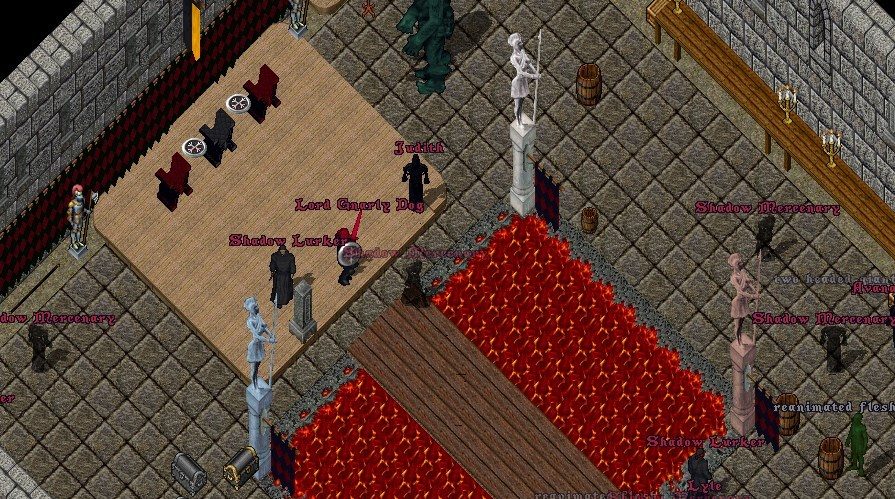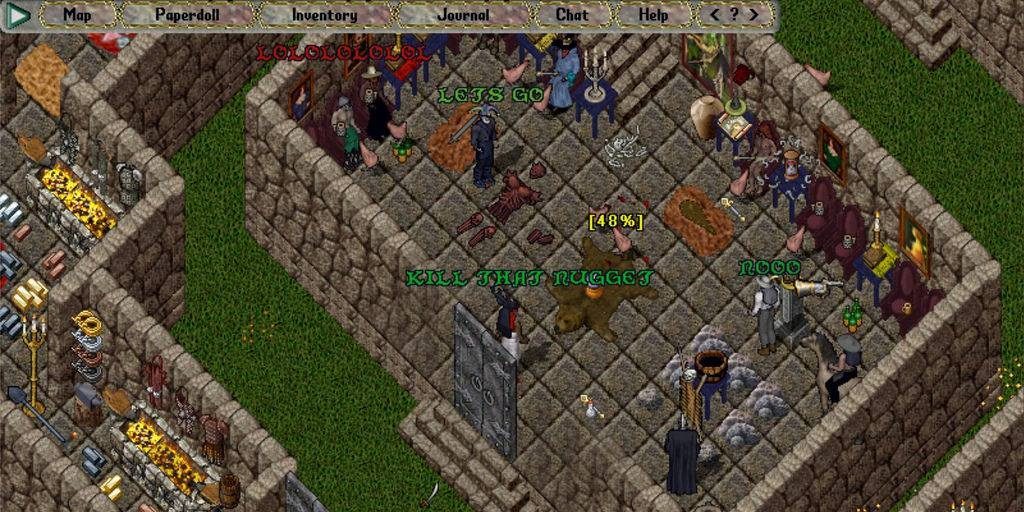This article is part of a collaboration with iQ by Intel.
When game servers are turned off, massively multiplayer online communities can come crashing down. Now, however, fans can take matters into their own hands using technologies like cloud computing.
The YouTuber A. Kaiser’s career as a Jedi would soon be over. He had played the massively multiplayer online game (MMO) Star Wars Galaxies (2003) for eight years. Now that the game was closing, he could think of no better way to spend his final day in the world than among friends.
A flock of players were standing around in Tatooine, no longer fighting or crafting Jedi cloaks but waiting for Sony to shut off the server, their digital home for the last few years. The mood was generally optimistic. But somewhere a Wookie was screaming. Then suddenly and without warning, the connection dropped and Star Wars Galaxies was officially dead. But, unofficially, the battle for Star Wars Galaxies had just begun.

One of the bitter realities of current-day gaming is that games can die and be lost forever. MMOs, and other games played over the internet, are particularly prone to this phenomena because publishers tend to pull the plug when the games wane in popularity in order to save money. Dedicated players, however, are taking it upon themselves to revive their favorite games to their former glory.
“The effort is immeasurable,” said Doug Rush, the lead developer on Project SWGEmu, a near-exact facsimile of the original Star Wars Galaxies—only it’s fan-created and controlled. “Our project is all volunteers. Our expenses are paid with donations. It takes a love for the game to keep it running.” The enormous task of resurrecting an expansive multiplayer game keeps important gaming history alive. And while server deaths are sure to continue, the tools available to help fans preserve them will only improve as well.
Rush used to play Star Wars Galaxies with his kids and, once the world ended, he found it impossible to replace that fundamental bonding time with anything else. That’s why he vowed to bring it back. Eight years later, their newly reborn version of the game surged in popularity, averaging around 1,500 players a day. This is not the first time people have put in a massive amount of energy to save an online place from falling by the wayside. “It speaks to the deeper impact of games—how they can affect people’s lives,” said Josh Bancroft, Community Manager at Intel. “You can say games are just entertainment or fun. But for a lot of players, especially of online games, it means being a member of a tribe.”
The team behind UO Second Age, for instance, are devoted to recreating the original Ultima Online (1997) the way it was played in 1998. The first version of the game was characterized by cutthroat rules, where players’ houses could be robbed or they could get jumped by bandits. But when an expansion changed much of this, the UO Second Age project set out to ensure that the harshness of the original was preserved.
This trend of saving digital worlds happens outside of games as well. Digital art non-profit Rhizome launched the GeoCities archive project and made a valiant effort to save a terabyte of early web culture, like Backstreet Boys fan pages and famous ASCII art web-rings, by relocating them to Tumblr. Dragan Espenschied of Rhizome said she’s impressed with the resourcefulness of these Geocities artists. “They didn’t have digital cameras or scanners,” Espenschied explained. “They had Notepad [the simple text editor], and they managed to make something. For me, that’s the treasure of preserving Geocities.”
To Star Wars Galaxies fans, no amount of effort was too great. “It takes an incredible amount of part-time engineering work to revive a game,” said Eric Kaltman in the Preserving Virtual Worlds Final Report, a paper for the Library of Congress. “They have reverse engineered the code and created a fake version of the server in order to make the game work.”

For the most part, the process takes a painstaking level of attention to detail and research. MMO revivers spend countless hours on YouTube, looking up the precise values for hit points and abilities. It’s the digital equivalent of looking at photographs of your childhood home and rebuilding it brick by brick. To make preservation easier, Alex Handy, the director of the MADE videogame museum, advocates for game publishers releasing their source code for older online games. This way, fans can quickly set up and run their own servers, thus future-proofing online games against virtual extinction.
In the meantime, however, Bancroft said that the technology to make preservation possible is better than ever, thanks to cloud computing. “A great way to position these old servers for preservations is to translate them from physical hardware into virtual servers that run on an elastic cloud infrastructure,” he said. Elastic cloud computing services like Amazon EC2, for example, allow people to rent then add more computing performance and storage to meet growing needs. Handy is finding out he more ancient the game, the more difficult the task becomes. He is heading up a revival project for Habitat, the first MMO ever released. It came out in 1986 and was played over a dial-up service for Commodore 64.
People told Handy that reviving it was impossible. First, he had to track down an original Stratus Technologies Nimbus server — a large clunky piece of computer equipment from the ’80s that didn’t exist anymore. Handy contacted an original Stratus employee, Paul Green, to construct a new one for him.
Handy is now waiting to receive libraries of code so that the revived game can communicate with the server. Without that, figuring out what the platform is trying to tell the server is like translating a dead language. But Handy isn’t the type to quit. “Once the server is up and running,” he said, “we will bring the game back online.”
